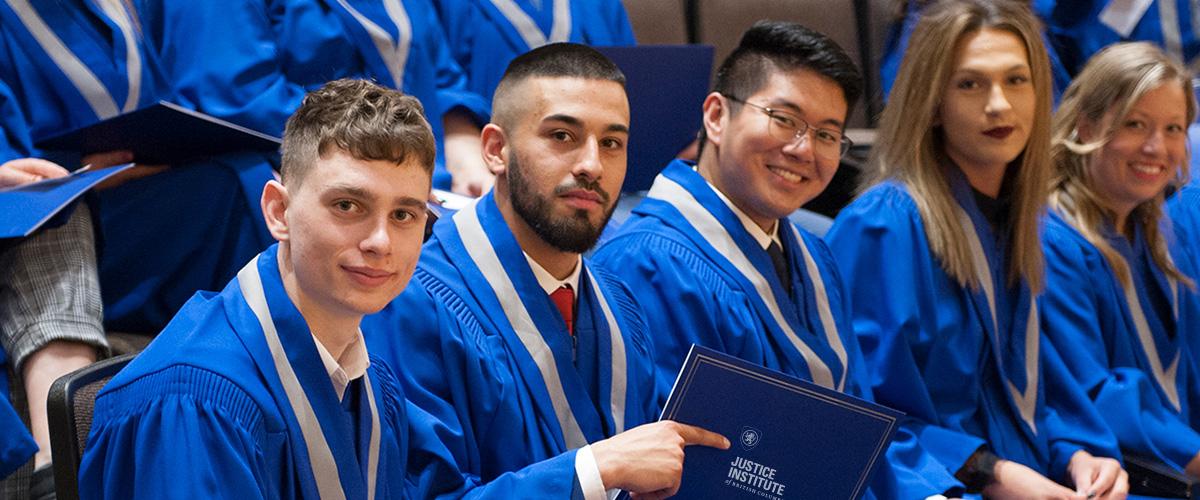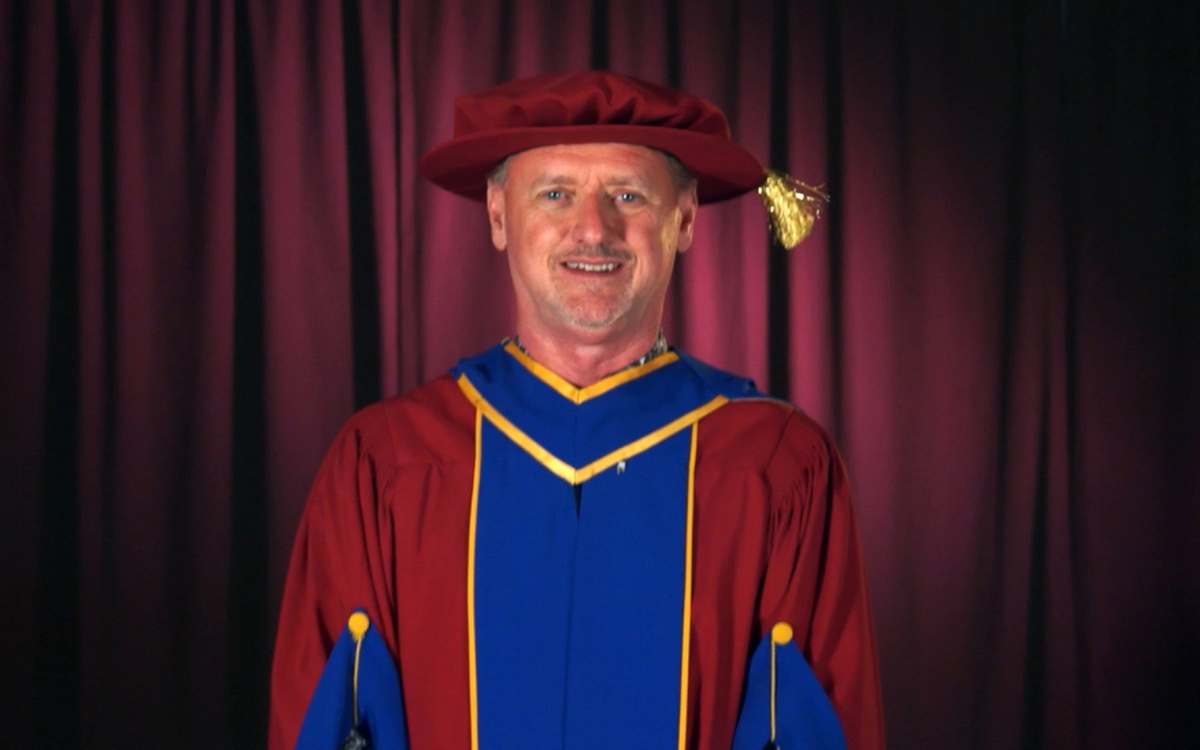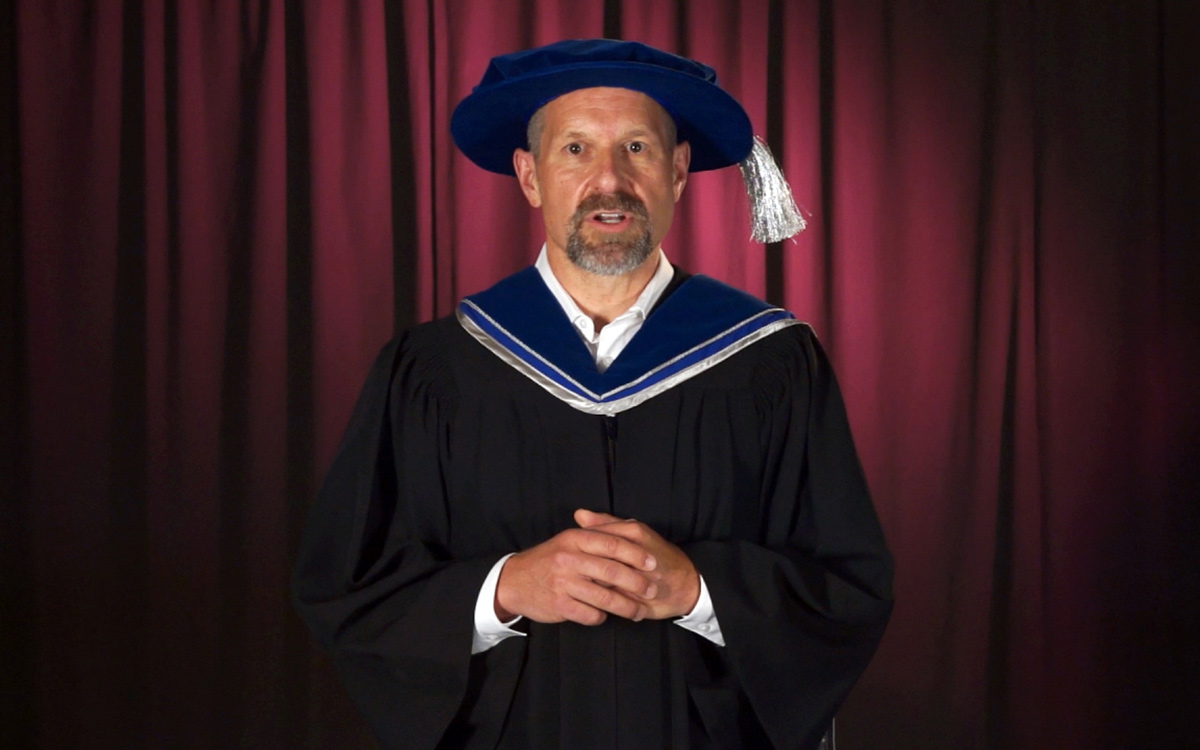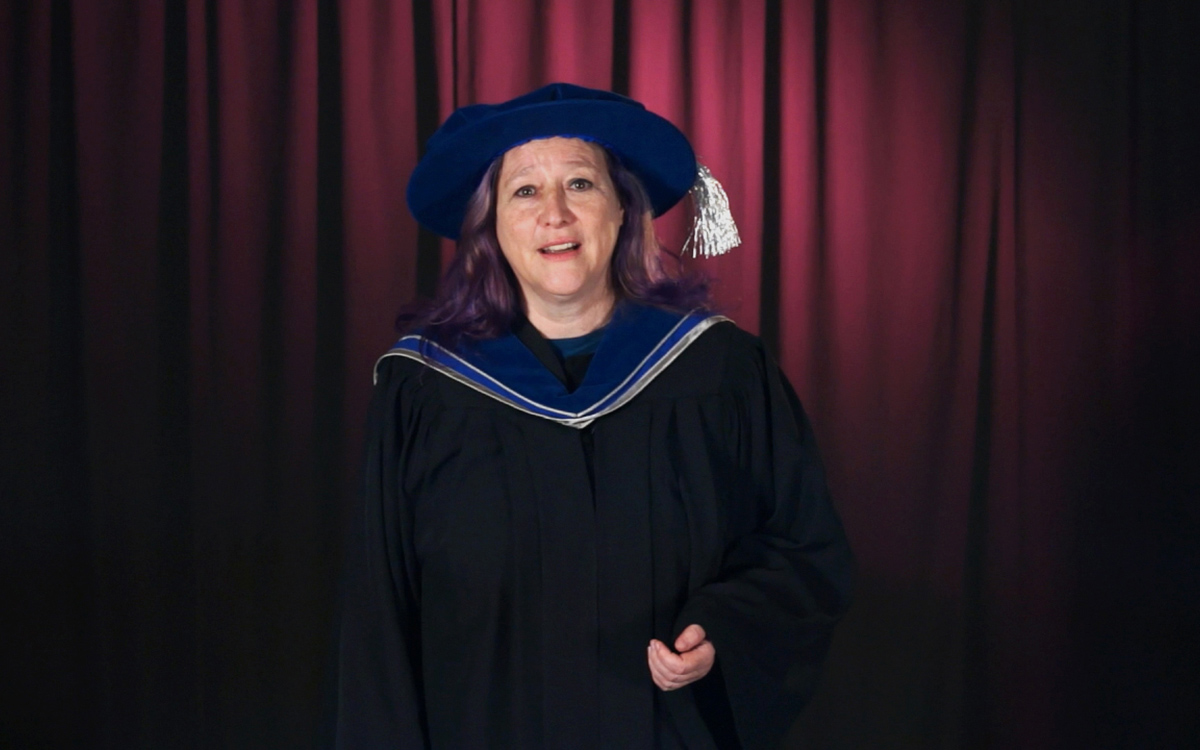Celebrates achievements of approximately 290 future justice and public safety leaders
The achievements of approximately 290 graduates were celebrated by the Justice Institute of British Columbia (JIBC) at its Spring Convocation held virtually on June 10, 2021.
“Each and every day, there are examples of our graduates – our everyday heroes – supporting the health, safety and well-being of communities in B.C., across Canada, and around the world,” said JIBC President and CEO Dr. Michel Tarko in his address to graduates. “You are now one significant step closer to becoming part of this family. Thank you for all of your efforts to join them and serve. I wish you all the best in the careers you have chosen.”
The ceremony also included the conferring of honorary degrees on two recipients, retired Abbotsford Police Department officer Michael Novakowski and Sharon Sutherland, Director of Strategic Innovation for Mediate BC.
Novakowski was recognized for his contributions to the promotion of legal education for police and his community safety initiatives during more than 30 years with the Abbotsford Police Department, from which he recently retired with the rank of staff-sergeant.
While much has changed since he began his policing career in the late 1980s, some things haven’t, such as human nature, Novakowski said. “People still hurt each other, hurt themselves, carry guns and do harm, thinking only of themselves. But there are also still people – police officers, first responders and community caretakers, like corrections officers, sheriffs, social workers, counsellors and outreach workers – everywhere that care and do their best every day to stop the harm, whether formally through the criminal justice system or informally through education, prevention, mediation and intervention.
“One of the most important principles I’ve learned is that everyone needs to be treated with dignity, value and respect. But this doesn’t mean you can’t disagree with someone, challenge them on their behaviour, or hold them accountable for their actions,” he said.
Sutherland was recognized for her contributions to conflict resolution through practice, advocacy, and the training and mentoring of mediators across Canada. She spoke on the opportunities presented amidst the challenges of the pandemic, noting that change can be good.
“As a direct result of the pandemic, we have engaged in heightened discourse on equity and inclusion. We have seen, and been a part of, meaningful, and sometimes profoundly positive, examinations of long unquestioned assumptions that have shaped institutions and systems,” Sutherland said.
“In conflict resolution courses at JIBC and elsewhere, instructors often encourage learners to shift their perceptions of conflict - to think of it as an opportunity,” she said. “There is much opportunity to transform our justice system in order to reduce unintended harms and hopefully offer earlier, less adversarial interventions in conflict. We have an opportunity to commit to acknowledgment of truth and to meaningful reconciliation with Indigenous Peoples. And we have the opportunity to examine our unstated assumptions about the intersections of public safety, health, and community wellness.”
Drew Allenby, graduating with a Certificate in Primary Care Paramedicine, spoke on behalf of the entire graduating class. He thanked JIBC staff and faculty “for giving us the best environment possible and all the tools we needed for success ... Your passion and excitement for careers in justice and public safety showed, making our learning experience all the richer for it.”
Allenby congratulated his fellow graduates on completing their studies during the uncertainty of the pandemic while following safety protocols. “Thanks to everyone’s best efforts we were able to adapt and make the best of a tough situation. Now we’ve made it to the finish line,” he said.
“As I’m sure many of you did, I wanted to serve my community and decided paramedicine was the best route for me. We will each have our own way of doing this and my hope is we can strive to improve the lives of others and our respective communities along the way.”





